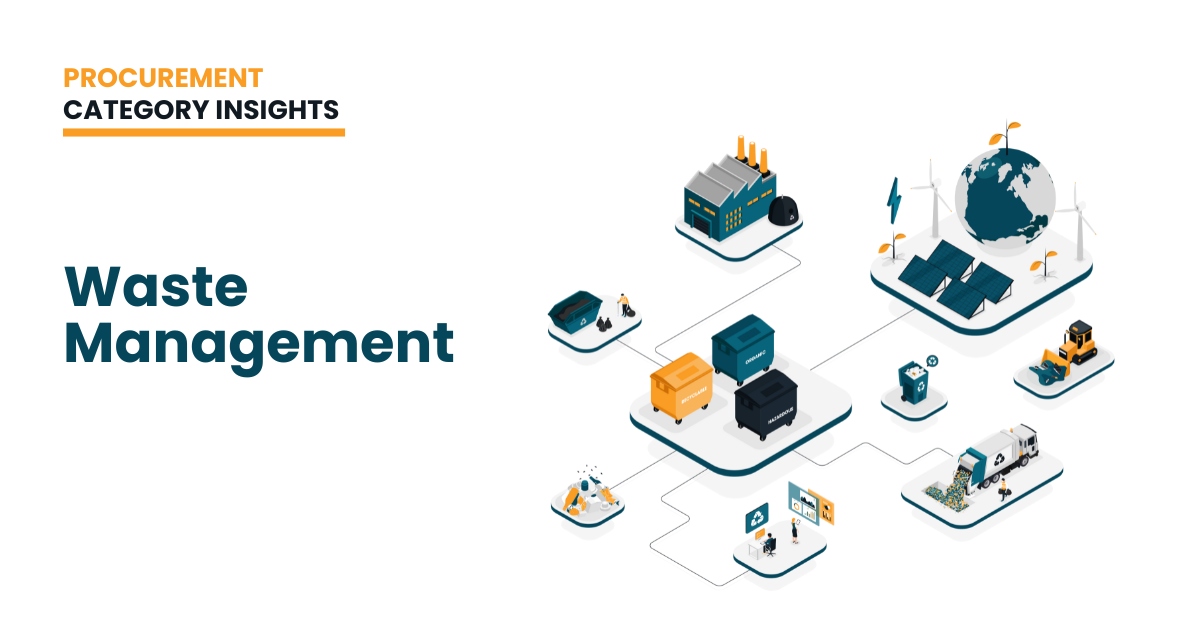Turning Waste into Wealth: A Strategic Journey in Waste Management
 The Challenge of Waste Management
The Challenge of Waste Management
Imagine you’re standing at the helm of a large organization, juggling countless responsibilities. Amidst all this, there’s one aspect that often flies under the radar—waste management. It’s easy to dismiss it as just another operational necessity, but what if I told you it could be a game-changer for your business? Picture waste management not as a cost, but as an opportunity—a strategic asset that can drive efficiency, reduce costs, ensure compliance, and boost your sustainability credentials.
This is the story of how rethinking waste management can transform your organization.
A Hidden Opportunity
Let’s start with the basics. Every day, your organization generates waste—some of it is general office trash, some recyclable, some organic, and maybe even some hazardous. Managing this waste might seem straightforward, but as you dig deeper, the complexity—and the potential—becomes clear.
Consider the waste generated across multiple sites, each with its own unique waste streams. Left unmanaged, this can lead to inefficiencies, inflated costs, and compliance risks. But when approached strategically, waste management becomes a well-oiled machine, driving operational efficiency across your organization.
The Power of Strategy
Now, let’s shift gears. Imagine a scenario where your waste management is not just functional but optimized. By minimizing waste generation, streamlining collection processes, and leveraging smart technology, you’re not only reducing costs but also enhancing productivity. Suddenly, waste management is contributing to your bottom line, not draining it.
Take, for example, the idea of reducing waste at the source. A manufacturing plant implements a rigorous recycling program, diverting tons of material from landfills. The result? Lower disposal costs and a boost to the company’s sustainability profile—a win-win. This isn’t just a hypothetical—it’s a tangible strategy that countless businesses are already benefiting from.
Navigating Compliance and Risk
Let’s not forget the regulatory landscape. In Australia, waste management is governed by a patchwork of stringent regulations that can vary significantly by state. Non-compliance isn’t just a financial risk—it’s a reputational one, too. Imagine the headlines if your organization were fined for improper waste disposal.
But with a strategic approach, these risks can be mitigated. Picture a scenario where your waste management processes are fully compliant, seamlessly aligned with both national and local regulations. Not only does this protect your organization from penalties, but it also ensures that your brand remains untarnished, standing tall as a leader in corporate responsibility.
Aligning with Sustainability Goals
As you’re steering the ship, sustainability is likely one of your compass points. You’re not just looking to cut costs—you want to align with broader environmental goals, ensuring that your organization contributes positively to the planet. Waste management plays a critical role in this narrative.
Imagine the impact of a zero-waste initiative across your organization. Not only are you cutting down on landfill waste, but you’re also turning waste into energy, compost, or even new products. It’s a powerful statement to your stakeholders that you’re serious about sustainability—and it’s a story worth telling.
The Role of Strategic Procurement
At the heart of this transformation is procurement. Think of it as the engine driving your waste management strategy. The choices you make here—selecting the right vendors, leveraging smart technologies, and optimizing contracts—can set the course for success.
Consider a scenario where you’ve chosen vendors who not only provide reliable service but also share your commitment to sustainability. Regular contract reviews reveal opportunities for cost savings—perhaps by consolidating services or renegotiating terms. By aligning procurement with your strategic goals, you’re not just managing waste—you’re optimizing it.
Tailoring the Strategy to Your Industry
Every industry has its own waste management challenges. Whether you’re running a healthcare facility dealing with hazardous medical waste or a manufacturing plant with large volumes of recyclables, the key is a tailored approach. Imagine a strategy crafted specifically for your industry’s needs, addressing its unique challenges while enhancing efficiency and compliance.
This is where expert consulting comes into play. By bringing in specialists who understand your industry inside and out, you can develop a waste management strategy that’s not just effective but transformative.
The Transformation Begins
Now, let’s take a step back and look at the bigger picture. You’ve embraced waste management not as a burden but as an opportunity. You’ve leveraged technology, optimized procurement, and aligned with sustainability goals. The result? A leaner, more efficient organization that’s not only saving money but also making a positive impact on the environment.
But this transformation doesn’t happen overnight. It’s a journey, one that starts with a single step—re-evaluating your current waste management practices and asking, “How can we do better?”
Your Next Move
The path forward is clear. To turn waste management into a strategic advantage, it’s time to take action. Evaluate your waste streams, review your vendor contracts, and explore the possibilities that smart technology and expert consulting can offer.
Ready to embark on this journey? Contact our consulting team today to discover how we can help you maximize value, ensure compliance, and achieve your sustainability goals. Together, we’ll turn waste management from a hidden cost into a powerful strategic asset for your organization.
 The Challenge of Waste Management
The Challenge of Waste Management